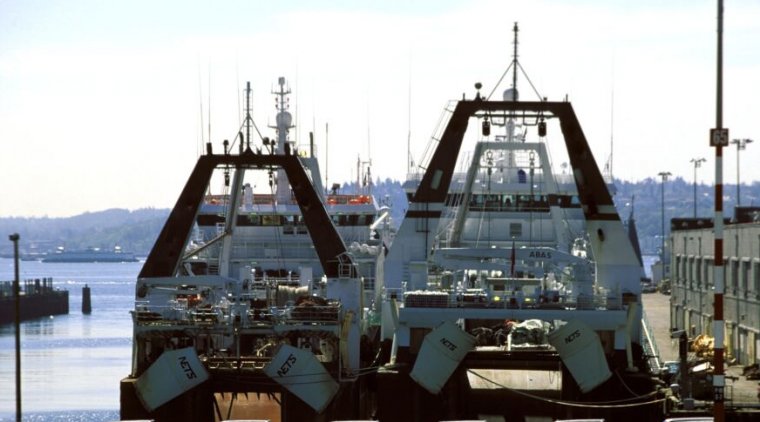Immunity Ahoy? —
The study is small and tricky to interpret, but it offers inklings of COVID-19 immunity.
Beth Mole
–



Enlarge / Fishing vessels in Seattle.
Hints of protective immunity against the pandemic coronavirus have surfaced in the wake of a recent COVID-19 outbreak that flooded the crew of a fishing vessel.
The coronavirus, SARS-CoV-2, infected 104 of the 122 people on board, about 85 percent, during a short voyage. But trawling through data collected before and after the ship set sail, researchers noted that the 18 spared from infection just happened to include the only three people on board that had potent, pre-existing immune responses against SARS-CoV-2. Specifically, the three sailors were the only ones found to have SARS-CoV-2 neutralizing antibodies, which are proteins that circulate in the blood and completely sink the infectious virus.
The numbers are small and the finding is not definitive. Additionally, the study appeared this month on a pre-print server, meaning it has not been published by a scientific journal or gone through peer review. Still, experts say the study was well done and significant for netting data that hint that potent, pre-existing immune responses from a past infection can indeed protect someone from catching the virus again.
“While this is a small study, it offers a remarkable, real-life, human experiment at a time when we’ve been short of hardline, formal, proof that neutralizing antibodies genuinely offer protection from re-infection, as predicted by animal models,” Danny Altmann, a professor of immunology at Imperial College London, said in a media statement.
Viral catch
For the study, researchers in Seattle, Washington were able to test 120 members of the 122-person crew before they set sail. They looked for active infections by probing for SARS-CoV-2 genetic material in noses, and they looked for past infections by probing for antibodies that develop toward the end of an infection. All 120 were negative for SARS-CoV-2 in their nose. Six, however, had antibodies against the pandemic virus.
On further examination of those six with antibodies, only three had neutralizing antibodies, the researchers found. Though all antibodies suggest past exposure to a virus, not all antibodies can neutralize viruses. And neutralizing antibodies are considered critical for protective immunity.
The researchers can’t say for sure what was going on with the three who had some antibodies, but not neutralizing antibodies. Their best guess is that they simply had false positive test results and didn’t truly have antibodies against SARS-CoV-2. But it’s also possible that they had waning antibody responses, perhaps from a distant infection at the beginning of the infection, or a burgeoning antibody response during the early stages of an infection. Regardless, after the ship set sail and the COVID-19 outbreak struck, all three were infected with SARS-CoV-2.
Immunity inklings
When the ship returned after about 16 days at sea, with sick aboard, the researchers re-tested all the crew members and followed them for up to 32 days. A total of 104 were infected, including one of the two crew members they didn’t initially test.
As for the three with neutralizing antibodies, initial tests for SARS-CoV-2 genetic material in their noses were all negative. Two of the three tested negative at three different times—from the day they got off the boat to 18 days later. The third crew member tested negative after three and ten days of disembarking. But, in a data wrinkle, this person had very weakly positive tests seven days and 13 days after getting off the boat. The tests didn’t qualify as positive, based on preset criteria. But it does suggest some remnant viral material was lingering in the person’s nose—which has been seen in other studies.
Despite the limitations of the study and quarks of the data, experts say it’s well done and helpful information. Jonathan Ball, professor of molecular virology at the University of Nottingham, noted in a media statement that although the study was small and leaves questions lingering, it “gives us important insight into the type of immunity that might protect from future infection.”

